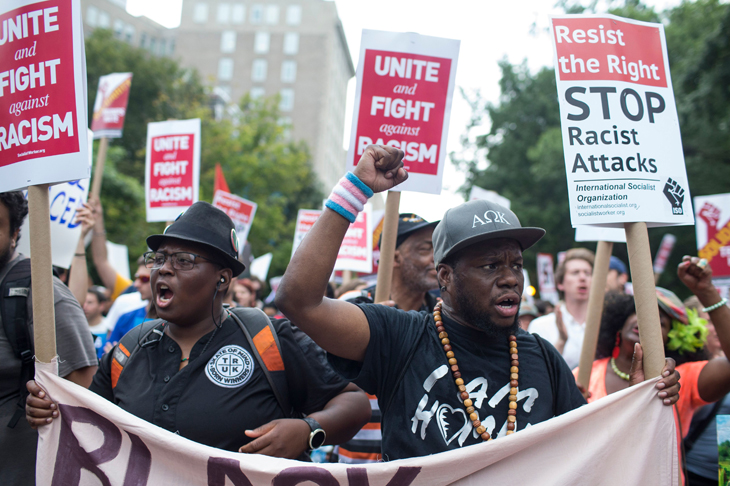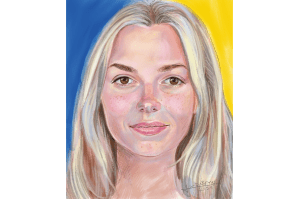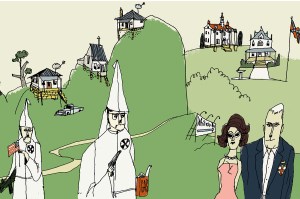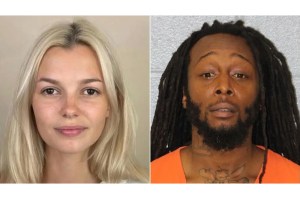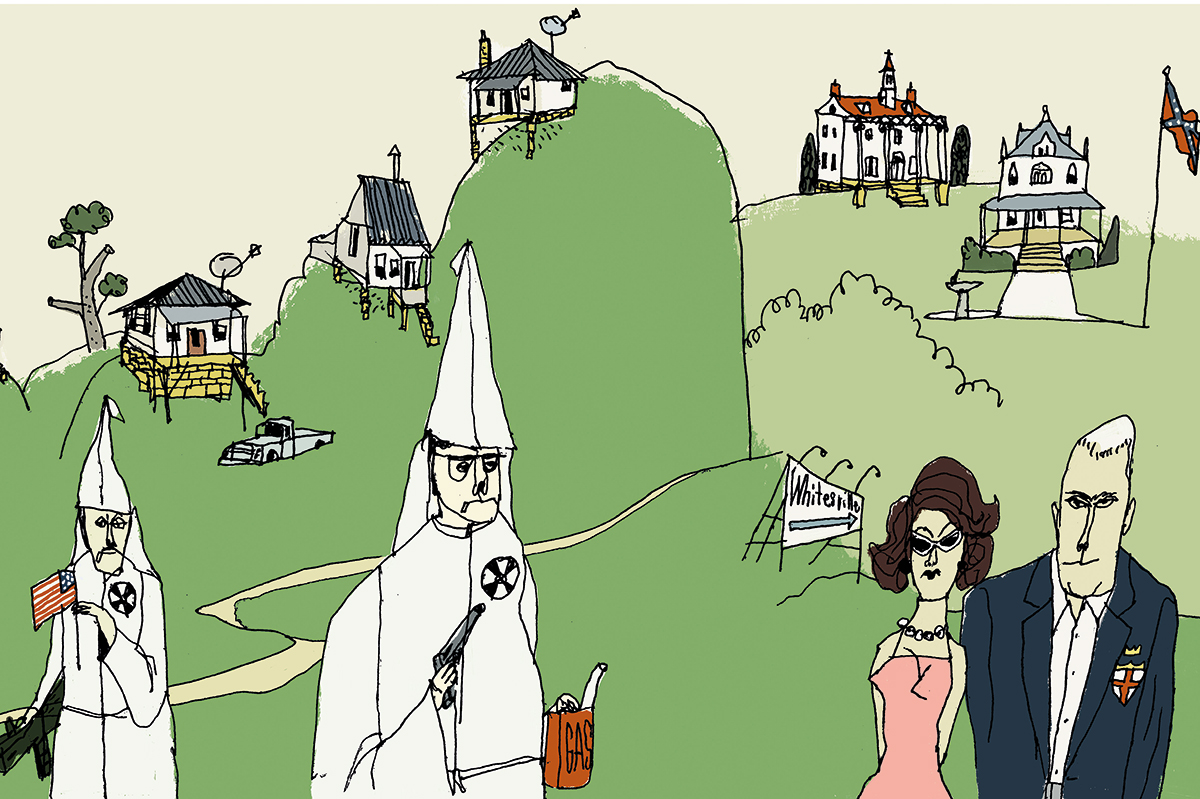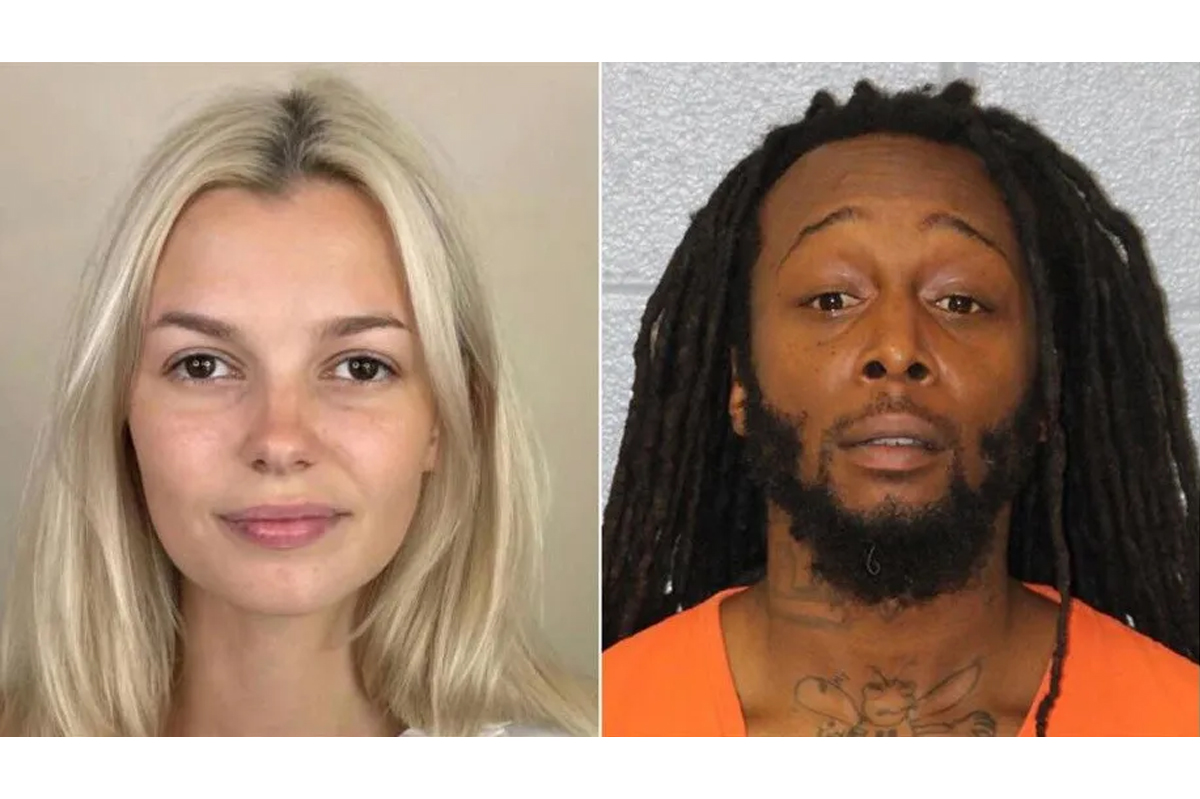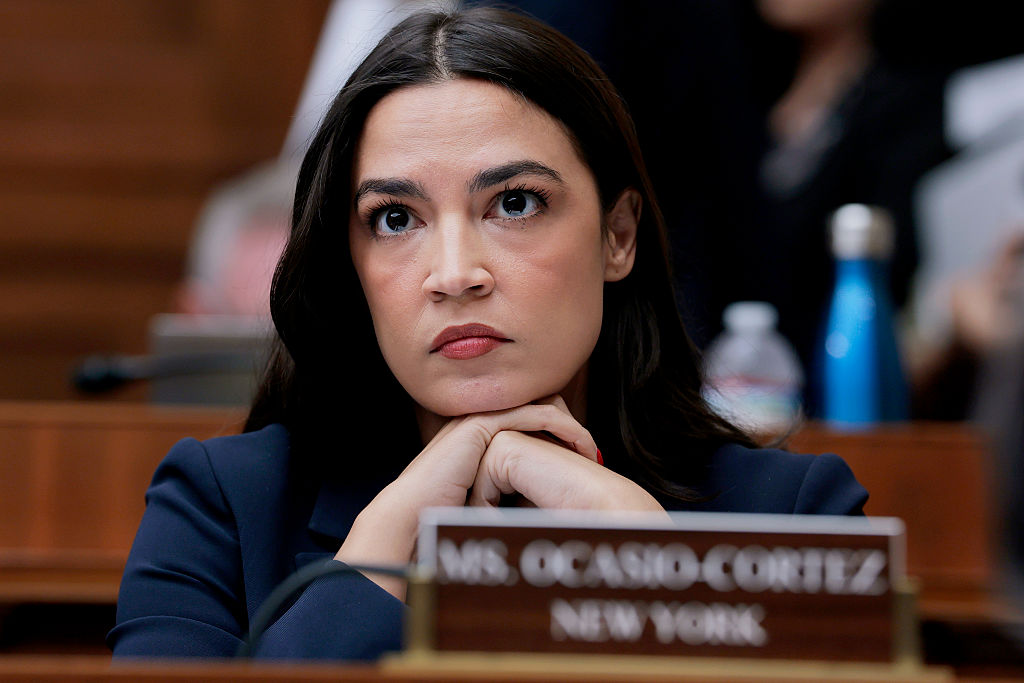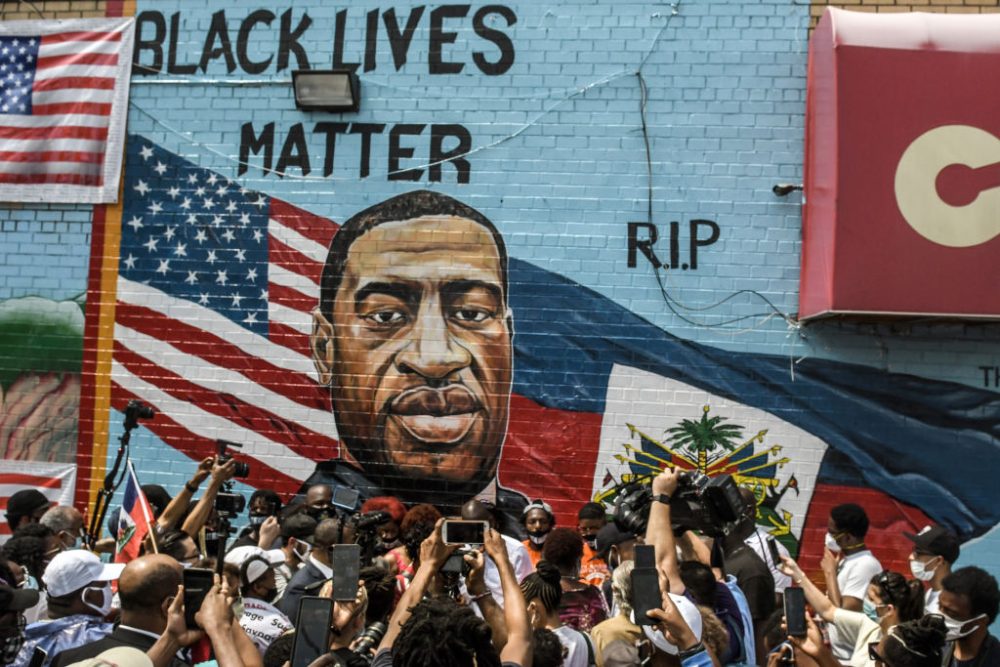To mark last weekend’s one-year anniversary of the violent right-wing demonstrations in Charlottesville, Virginia, a meagre two dozen card-carrying white supremacists showed up in the town, vs thousands of anti-racism protesters — proportions that may reflect the nation as a whole. Nevertheless, ever since the 2017 rally, the American left has thrown around the pejorative ‘white supremacist’ with such abandon that you’d think the country was jagged with peaked white hats from sea to shining sea.
By fits and starts, the past 50 years have seen equality of opportunity for minorities in the States improve dramatically. Yet racial rhetoric, and the overall touch-and-feel of race relations on the ground, is deteriorating.
An astonishing 55 per cent of Americans now consider being white important to their identity. I don’t count myself among them. All of greater Europe and its vast diaspora is too diffuse an association to do anything for me. I may be feebly interested in my German heritage, but should DNA analysis prove that my forebears were actually Bangladeshi, if anything I’d throw a party. (‘Yay! I’m not white! Nothing’s my fault!’) I don’t much care about being female or American, either. These are all attributes foisted upon me at birth that I did not choose.
Having little attachment to your race is a luxury, of course. Historically, African-Americans have had to consider their race important, because it was too important, in the worst way, to others. Yet luxuries aren’t to be wasted, so I plan on continuing to be so-what about my skin colour. Progress, to me, involves us all becoming so-what about race — but that’s not the direction we’re headed.
White Americans may be embracing a race long associated with blandness and bad bread in part because they’re within shouting distance of becoming a minority in what they had been regarding as their country. Donald Trump is an aggravating factor, but American retreat to racial foxholes well predates his watch. For I also blame identity politics — which have whipped up racial antagonism, encouraged nakedly anti-white bombast and ushered in a glaring double standard that’s unsustainable. You cannot have black identity politics, and Latino identity politics, without conjuring the pastel version. Yet only ‘white identitarians’ are demonised as driven by hatred. Whites are the sole race the mainstream western media forbids to forge a sense of unity or to defend their own interest. The only identity whites are allowed is self-disgust. Whites who stray from ceaseless self-crit are moral degenerates.
Last week on the PBS NewsHour, a moderator, the New York Times columnist David Brooks and the Washington Post deputy editor Ruth Marcus discussed a 2016 poll by the Institute for Family Studies. It asked some 3,000 non-Hispanic whites, roughly: 1) Do they have a strong sense of white identity? 2) Do they have a strong sense of white solidarity? 3) Do they think whites face discrimination? (After 50 years of affirmative action and the latest consuming obsession with ‘diversity’ in hiring, you wouldn’t have to be demented to suppose that white Americans might face some discrimination. Indeed, one 2012 poll had more than half of white Americans agreeing that whites have replaced blacks as the ‘primary victims of discrimination’, a bridge-too-far assertion I find ludicrous.)
Six per cent of the sample answered strongly in the affirmative to all three questions. The whole NewsHour panel blithely assumed that this 6 per cent supported last year’s Unite the Right rally in Charlottesville. For Brooks, the 6 per cent amounted to ‘white identity verging into racism’. Though the poll (whose results I’ve read) never asked respondents if they considered their race superior, the PBS moderator presumed that the awful 6 per cent ‘identified with white supremacy’. Marcus chimed in: ‘It’s not the 6 per cent I worry about, but people who do not think of themselves as racists, do not subscribe to extreme views, who think of themselves as decent people.’
By inference, the ‘6 per cent’ think of themselves as racists, subscribe to extreme views,and aren’t decent. But let’s look at those questions. Ask African-Americans if they’ve a strong sense of black identity, black solidarity and black victimisation, and the majority would say yes to all three. Yet NewsHour commentators would never decry a sense of black identity as necessarily ‘verging into racism’, or presume such respondents supported ‘black supremacy’ and held ‘extreme views’.
The American left urges every race to organise, pull together, demand their rights if not special treatment, recognise their common experience, celebrate their people’s separate history and separate accomplishments — except one. If white people do the same thing, they’re bigoted and beyond the pale. That mixed-message platform isn’t politically saleable in the long term, isn’t actually fair and is already backfiring big-time.
To be clear, I’m not arguing for white identity politics, but against identity politics of any brand. The movement insists that what we are is more important than who we are; that our lives derive their meaning from our membership of groups; that what happens to us isn’t the product of our own decisions but of unequal power dynamics that are bigger than we are. Ergo, your complexion eclipses everything else about you. Identity politics are overtly and explicitly racist. In fact, by cavalierly characterising anyone who embraces a white identity as a ‘supremacist’, that NewsHour discussion was racist as could be.
Keep playing this game, get more white folks playing it, too. Some white liberals will continue to compete over who can seem more ashamed, in an effort to earn themselves out of their skin colour (sorry, guys—doesn’t work, and anything nasty you say about white people still applies to you). But all the other pale faces won’t necessarily tolerate being told that Caucasians alone cannot be regarded as a cohesive people, cannot experience solidarity, cannot feel communal pride, cannot fight back when slandered or stereotyped, cannot advocate for their interest and cannot ever, ever feel sorry for themselves. The sleeping giant of white identity politics? Thanks to misguided hard-left activism, it’s woke.
This article originally appeared in The Spectator magazine.



